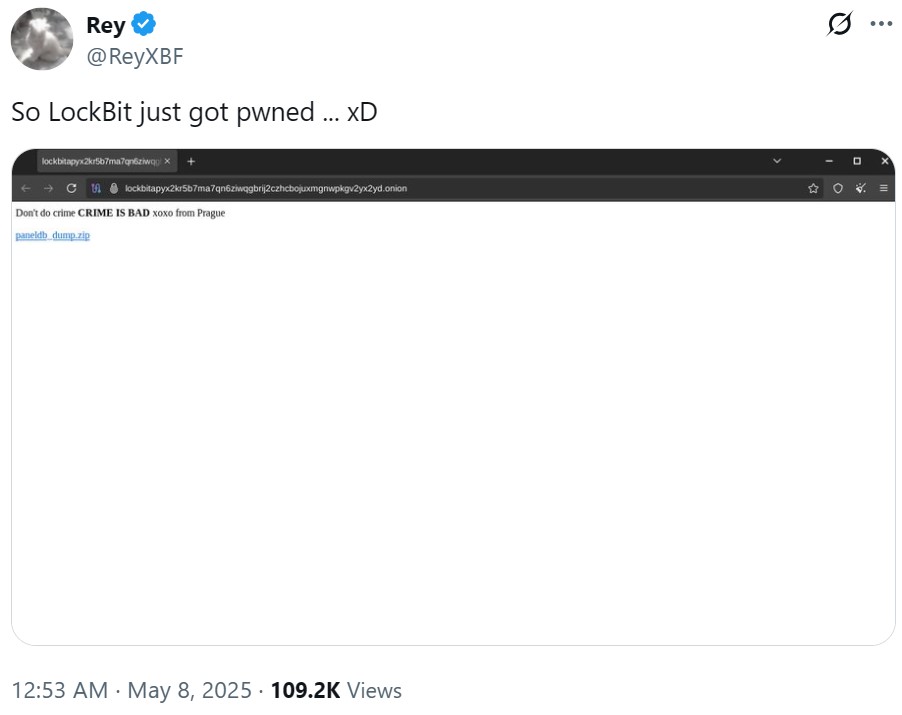
LockBit‘s Dark Web Empire Breached, 60,000 Bitcoin Addresses Exposed
In a significant blow to the infamous LockBit ransomware operation, a recent hack has exposed nearly 60,000 Bitcoin addresses tied to the group’s infrastructure. This leak, stemming from a breach of LockBit‘s dark web affiliate panel, reveals critical details about the group’s inner workings, potentially aiding law enforcement in disrupting their illicit financial activities.
The leaked data, including a MySQL database dump publicly shared online, offers a glimpse into LockBit‘s operations. It contains information about various ransomware builds, target companies, and even negotiation messages between victims and the ransomware group. While no private keys were included in the leak, the exposed addresses, combined with the other information, could allow blockchain analysts to trace the group’s financial flows and potentially link past ransom payments to known wallets.

The Fallout: A Deeper Look at the Leak
The exposed database consists of 20 tables, providing a rich dataset for investigators. One particularly valuable table, labeled “builds,” details the individual ransomware builds created by LockBit‘s affiliates. This table also identifies some of the target companies for these builds, offering insights into the group’s strategies and potential victims.
Another noteworthy table, “chats,” contains over 4,400 negotiation messages between victims and the ransomware organization. These messages could reveal negotiation tactics, ransom demands, and potential vulnerabilities in LockBit‘s extortion methods. This type of information could prove invaluable to law enforcement in developing countermeasures and improving communication strategies with future victims.
The Impact on the Crypto World
The LockBit breach underscores the significant role that crypto plays in the ransomware economy. By demanding ransom payments in Bitcoin, ransomware groups like LockBit rely on the anonymity and decentralized nature of the cryptocurrency to obscure their financial trails. However, the exposure of these addresses provides a window into their operations, enabling law enforcement and blockchain analysts to track their activities and disrupt their financial networks.
While LockBit claims no private keys were lost in the breach, the leaked information provides a significant opportunity to dismantle the group’s infrastructure. The exposed addresses, combined with the other details in the database, could lead to investigations, asset freezes, and ultimately, a disruption of LockBit‘s operations. The impact of this leak could extend beyond LockBit, as it sets a precedent for exposing the financial networks of other ransomware groups and highlights the vulnerability of their crypto-based activities.
The breach also underscores the need for robust security measures within the crypto ecosystem. As ransomware attacks continue to evolve and become more sophisticated, it is crucial for individuals and organizations to stay vigilant, implement effective cybersecurity practices, and be aware of the potential risks associated with crypto-based extortion.


